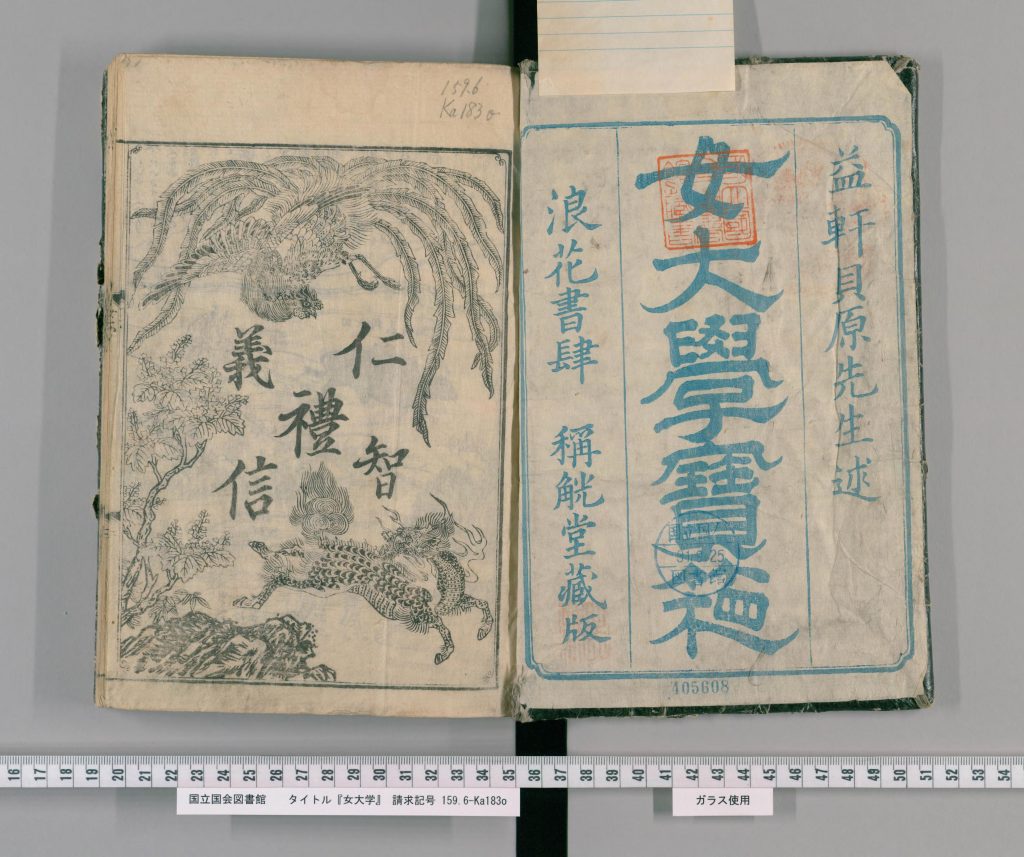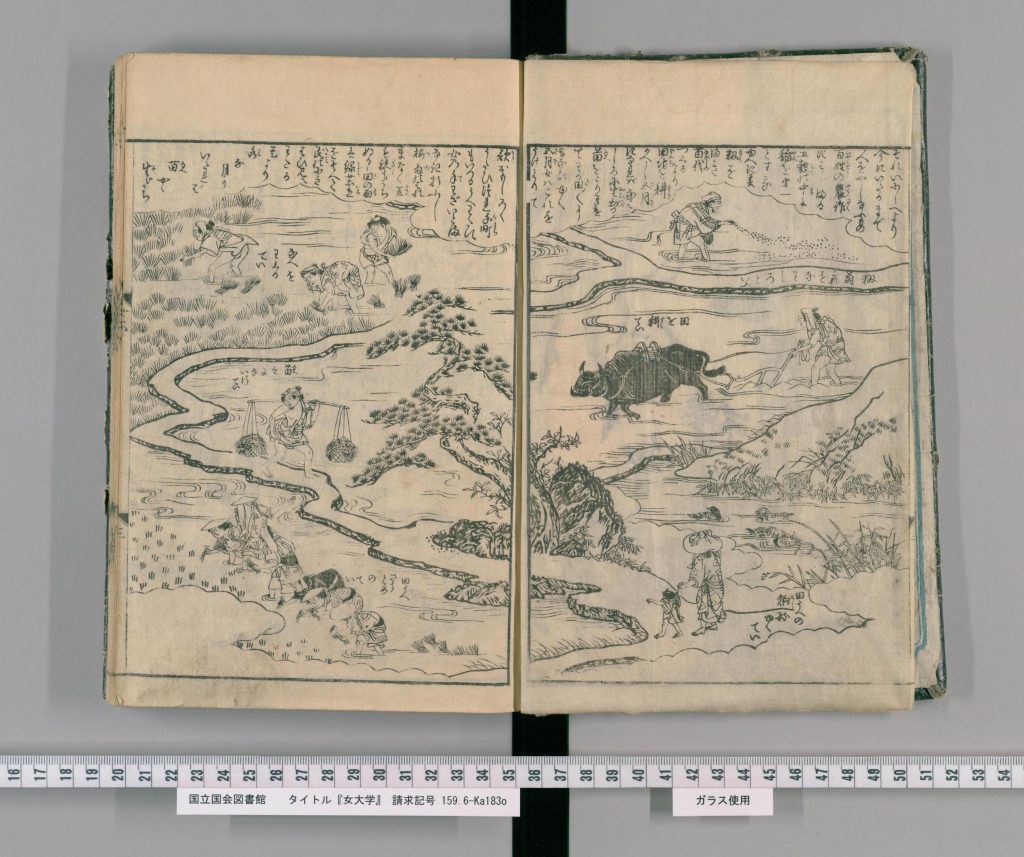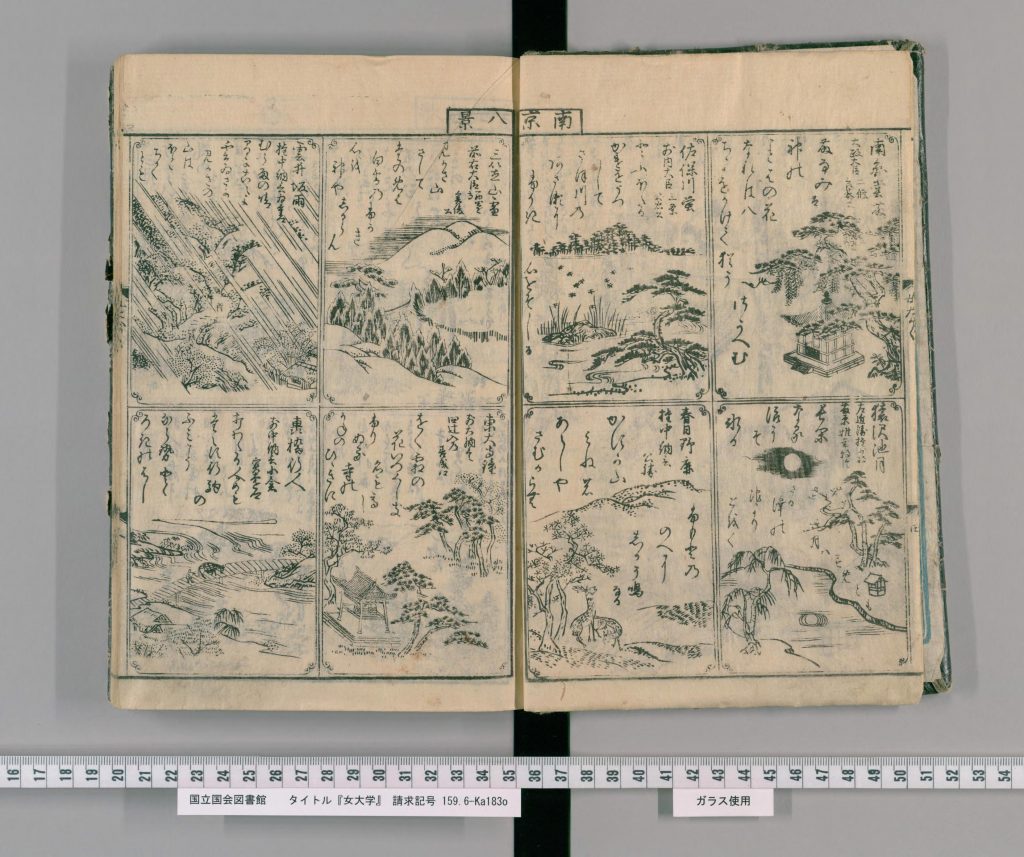Buke women in the late Tokugawa period are said to have been educated privately at home. Most importantly, they learned about morality based on Neo-Confucian thought, and proper etiquette and behavior as buke women. There are two reliable historical accounts about the buke women’s private education.
One of the late Tokugawa Confucian Philosophers, Inooka Gisai was devoted to educating his daughter Shizu. One of his books titled Yakakuko describes his instruction to Shizu who would become a buke wife. Gisai taught Shizu to support her husband in sustaining his job performance, which was regarded crucial as a buke wife. Also, in the absence of her husband, Gisai preached, Shizu must not meet with any other man. Gisai also urged her to uphold the virtues of propriety and righteousness, decency, and shame.[1] He made sure that Shizu was well-educated and possessed literacy that she needed for the household management. Overall, Yakakuso presents that Gisai encouraged Shizu to cultivate Confucian thought to be a buke wife. With such cultivation, Gramlich-Oka mentions, that the book is comparable to well-known women’s education texts, such as Onna daigaku (“The Greater Learning for Women”). Through Yakakuso, the author adds, Shizu’s education shows the strength of the father’s influence on her more than her mother’s. Indeed, Gramlich-Oka points out that from the records of Shizu’s life her mother is largely absent. The lack of female instructors in Shizu’s education agrees with Matsudaira’s opinion mentioned earlier, i.e. to exclude women from educational settings. Not only does Gramlich-Oka argue that the absence of a mother indicates how male-dominated the Tokugawa society was, but Shizu’s overall experience also implies that buke women’s education rests heavily on their father’s instruction, which potentially perpetuated the idea of male supremacy.
Another example is from the Mito domain, now Ibaraki prefecture. The domain formed educational institutions for buke son and daughter in the late Tokugawa period. Yamakawa Kikue, a well-known socialist feminist, indicates that in school, both boys and girls spent school life in a similar way. For example, they arrived early in the morning bringing their lunch with them, spent the entire day at school, and they both practiced writing.[2] However, a difference in the learning content was found between the boys and girls. The content of women’s education was more or less fixed. The girls initially learnt to write the Iroha poem containing all the sounds of Japanese syllabary, and then learned to understand the teachings of Onna daigaku. Yamakawa claims that this textbook negatively influenced women’s sense of value. For instance, women were, while practicing reading and writing, using passages called “Seven Reasons for Divorce.” One of the passages states that “[a] woman shall be divorced if she fails to bear children.” The reason for this rule to be taught is because the buke women’s education pursued the thought of providing an heir for men as the purpose of marriage.[3] With the consideration that children are unexperienced or uninformed, many of the buke daughters would have assumed such rule as normality. Not only schools but also the social norm among the Mito people possibly cultivated buke women to accept women’s inferiority. Actually, too much emphasis on the procession of bloodlines among samurai families, Yamakawa mentions, led Mito people to think highly educated women as disadvantageous for their family. The reason is that these women would find it difficult to marry and they were concerned their bloodline would be lost. The societal expectations for buke women were narrow-minded, as Yamakawa claims, and would have discouraged buke women to seek higher education.
As has been shown, both Yakakuso and the teachings in the Mito domain based their education on the instruction of Onna daigaku, which means that that buke women’s education idealized men’s posterity and supportive womanhood. To evaluate buke women’s education, Tadano Makuzu, a philosophical thinker of the Tokugawa period, left an important remark. She was from a buke family and exceptionally highly educated. In one of her well-known books Hitori Kangae published in 1817, Tadano claims “tradition teachings for women are wrong in trying to suppress young women’s preference for the up-to-date.”[4] Her criticism of women’s education in the late Tokugawa period indicates how suppressive buke women’s education was. To conclude, buke women were well-educated, while the education suppressed the establishment of an own worldview and potentially led them to abide by the male-dominated society.
[1] Gramlich-Oka 2016, pp. 123–40.
[2] Yamakawa 2015, pp. 27.
[3] Yamakawa 2015, pp. 27.
[4] Tadano et al. 2001, pp. 174.



